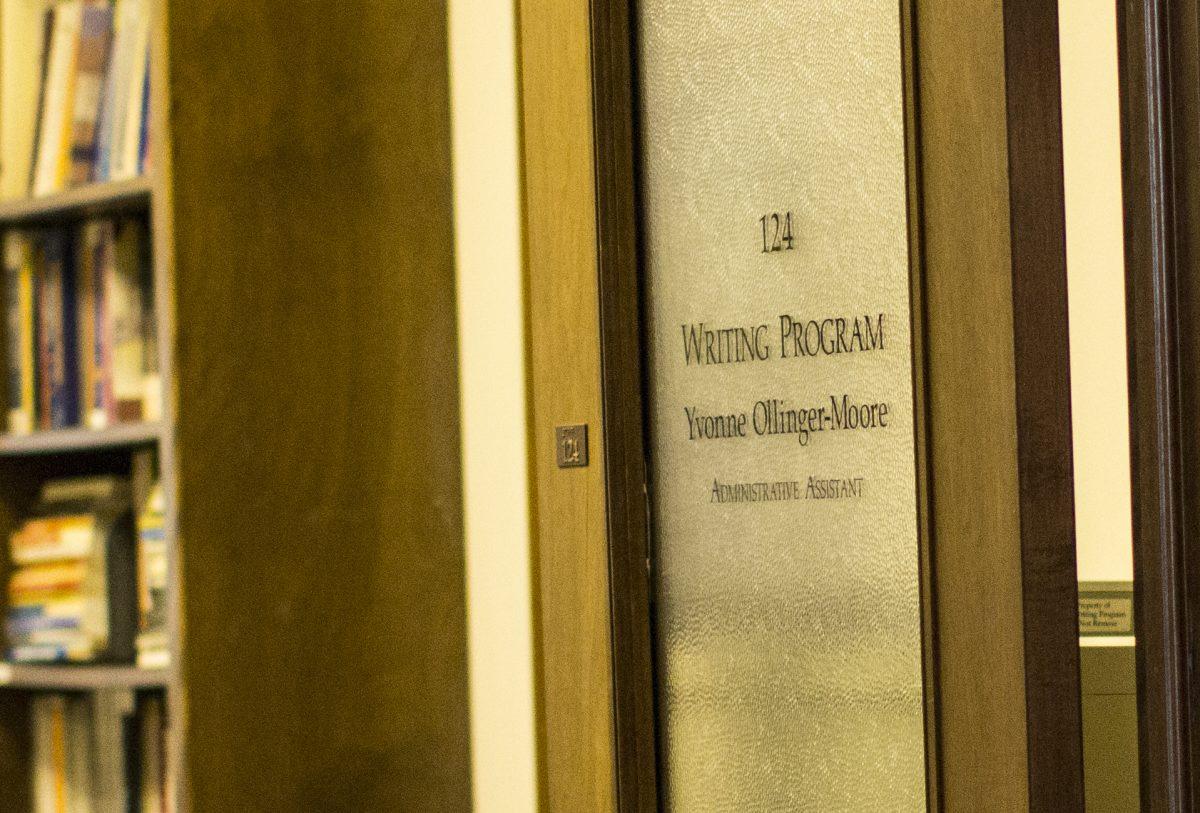Wellesley College’s Writing Program, founded in 1983, is still thriving after years of development and improvement, including the creation of the Writing Tutors Program and the addition of Writing Prizes.
According to Winifred Wood, a senior lecturer in the Writing Program, the purpose of the Writing Program is to help students learn to think more analytically. Wood has also served as the program’s director for years.
“I believe in my deepest heart of hearts that writing and thinking are the same thing. And so if you sit down and write your way through a knotty problem, you’re also thinking your way through a knotty problem. And ideally you’re coming up with something more interesting than you had before you started writing. So it’s also a way to kind of really move students into deeper and richer thinking,” Wood said.
The program was founded because the College realized that Wellesley students were not strong enough writers, said Lynne Viti, another senior lecturer in the Writing Program.
“The old requirement used to be in the English department, and then there were some years where there was no writing requirement at all. And this was not unusual. English departments just started cutting it. And I think people kind of looked around and said, ‘Oh my God, our students can’t write,’ ” Viti said.
The main focus of the Writing Program is on first-year writing courses, a requirement for all students. There are also other writing courses available for students who may need more help strengthening their writing, as well as Calderwood Seminars, which are intensive, senior level writing classes.
The Program tries to have classes across as many different disciplines as possible, something that Wellesley students recognize and appreciate.
“During the summer, I was impressed by the variety of subjects in which I could choose to incorporate writing, eliminating the standard ‘writing 100’ stereotype I feel a lot of First Years deal with at other schools,” Emily Neel ’18 said.
However, Wood explained, it can be difficult to always have classes available in the disciplines students are interested in because the courses depend on faculty wanting to teach them.
“We have to start with the faculty members we have available to us. The first thing is to get a faculty member who’s excited about a topic they would like to teach through writing … What we wish we could have more of are more social science writing courses because that’s what students would like more of … So we don’t always get the balance that we would like to get to meet student demand, but we get as close as we can,” Wood said.
Over the years, the Writing Program has expanded in various ways, including the addition of Writing Prizes. In 1987, the Three Generations Fund was established, so that students could receive prize money for winning the Three Generations Prize for First-Year Writing, the social sciences or the hard sciences. There is also the Kathryn Wasserman Davis ’28 Art Prize, which is funded by the Davis Foundation and given to a student who writes about events or objects in the Davis Museum and Cultural Center. Having these prizes available signifies the importance of writing at Wellesley, said Jeannine Johnson, who is Director of the Writing Program and Coordinator of the Writing Tutors Program.
“I think it’s a recognition of how important and central writing is to the academic experience and to life in general … In terms of the writing program continuing to administer it, I think it’s important to acknowledge and to celebrate really good writing and make it public, and it’s just another way of reinforcing that we value writing,” Johnson said.
The Writing Program also founded the Writing Tutors Program, which is essential for students seeking writing help, said Professor Johnson.
“I know that faculty who teach in the writing program are very happy to work with students and to look at drafts and help with revision. We see the tutors as complementary to that instruction. And I think one of the most valuable things about having a peer tutoring program is that a student knows what it’s like to be a student and knows what it’s like to struggle with writing. They’ve gone through it,” Johnson said.
According to Viti, it is amazing that the Writing Program has remained so strong over the years because it really depends on the support of the whole campus and requires the voluntary involvement of professors from multiple disciplines.
“There’s a lot of support, sort of campus-wide for the program. And I think that’s what keeps it so vital,” said Viti.
Another reason that the program has remained so robust is that there are many professors who have stayed in the program for years, such as Professor Wood, who was hired in 1984, and Professor Viti, who was hired in 1987. Professor Wood said that the reason she has remained at Wellesley for so long is that she loves the student body.
“The students are fantastic. It’s really fun to work with Wellesley students. And every class is different, and I absolutely never get tired of teaching writing,” Wood said.
While the Writing Program continually looks for ways to improve, faculty members nonetheless are proud of the success the Program has had thus far.
“We wanted to build a culture of writing at Wellesley, and I feel very strongly that we succeeded in doing that,” said Wood.






